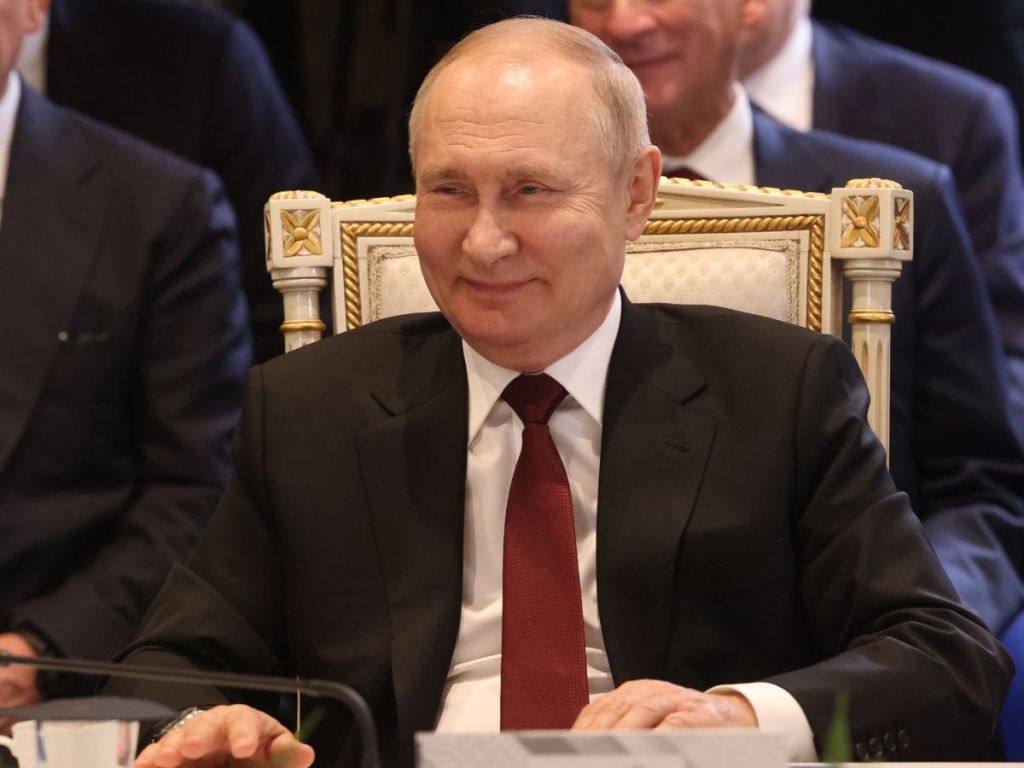In a recent conference on AI organised by Russia’s largest bank, Sberbank, Russian President Vladimir Putin argued in favour of a new blockchain-based system, describing it as “much more convenient” as it reduced dependence on banks and third parties.
According to the President, “The technology of digital currencies and blockchains can be used to create a new system of international settlements that will be much more convenient, absolutely safe for its users and, most importantly, will not depend on banks or interference by third countries”.
Recognising the power of blockchain payments’ ability to disintermediate third parties, he offered a not-so-subtle dig at the US’ grip over international payments system infrastructure:
“I am confident that something like this [blockchain-based international payments] will certainly be created and will develop because nobody likes the dictate of monopolists, which is harming all parties, including the monopolists themselves.”
But why is Putin keen on blockchain?
Earlier this year as Russia invaded Ukraine, it was promptly booted out of the US-led SWIFT payments system used for international cross-border settlements. In addition, over US$300 billion in global assets owned by Russia have been frozen.
The idea was to force Russia into a corner where it would be unable to trade with anyone at a time when billions of assets were frozen.
Importantly, as the global reserve currency, the US-dollar reigns supreme. Aside from what has been termed the ‘exorbitant privilege‘ of printing a currency the rest of the world wants, it also gives the US the ability to deploy ‘financial weapons of mass destruction’ which includes asset forfeiture (i.e. we’ll freeze your assets, aka “they’re ours now”) and being booted out of the financial system (i.e. sorry, you can’t use SWIFT).
Through the West’s actions, largely led by the US, the message to Putin was simple – “if you breach the rules of our game, we’ll take your stuff and block you from trading with most of the world”. Clearly the message was received.
Going back to Putin’s speech, he emphasised that financial flows between nations were under threat given the current state of relations between Russia and the West:
“We all know very well that under today’s illegitimate restrictions [sanctions], one of the lines of attack is through settlements. And our financial institutions know this better than anyone because they are exposed to these practices.”
Enter blockchain, which is generally viewed as being immutable and offering instantaneous settlement between parties without the reliance on third parties. Who needs slow inefficient payment systems, especially if you can get kicked out? But is blockchain technology the solution to Putin’s woes and if so, which one?
Putin blockchain payments
If you’re Putin and looking at the various blockchains on offer, the first thing you’d want is censorship-resistance – you don’t want anyone to be able to block your transactions at will. And of course, any blockchain with an identifiable group of leaders is capable of censorship.
A single phone call to Justin Sun of Tron or Vitalik Buterin from Ethereum, and Russia would likely be booted from the network. This isn’t fantasy, Ethereum is already doing it, with 75% of post-Merge blocks complying with OFAC (a US sanctions list).
What about Bitcoin? Bitcoin is apolitical, censorship-resistant and without a leader, so there is no reason in principle why Russia couldn’t use Bitcoin. Sure, the US could pressure US Bitcoin miners to censor transactions, but that would only be marginally effective. Partial solutions are somewhat useless, but perhaps there is a bigger issue at play?
While Bitcoin is likely the most suitable public blockchain, the real question is whether Putin would want a public blockchain at all. Why would he be okay with anyone being able to track all transactions?
Hint – he likely wouldn’t, as public blockchains simply reveal too much information for authoritarians who like to keep a tight grip on information dissemination. Why reveal who you are trading with and the extent of it when you can keep things deliberately opaque?
Russia
Therefore when we think of Russia looking at blockchain technology, if anything, we may see a private blockchain where participants are permitted access strictly by invitation, rather than through an open, opt-in protocol – a so-called ‘Putin blockchain’.
A Putin blockchain would certainly enable swift, instantaneous settlement between Russia and her allies, not to mention that it would also sidestep US efforts to censor financial transactions. Think of it like an invite-only blockchain payments club which explicitly exclude the US and its friends. Whether it gets any uptake is a whole other story.



